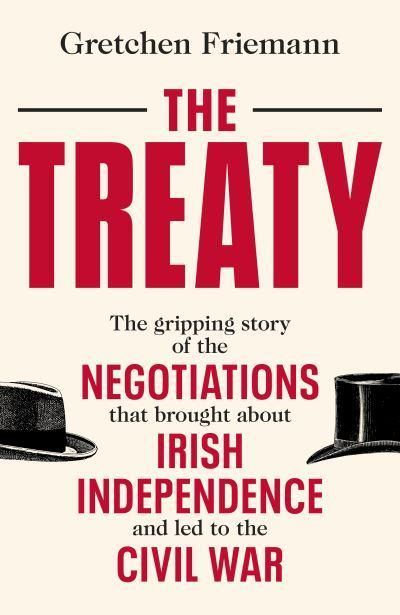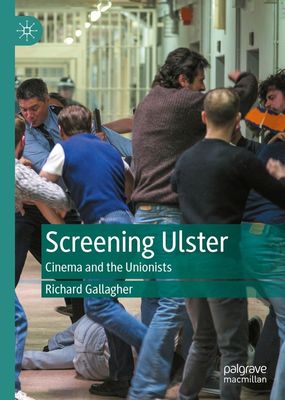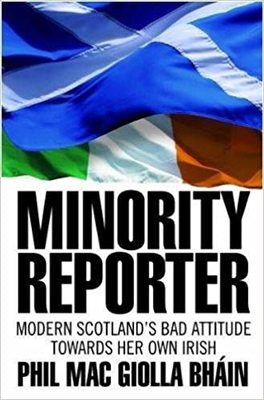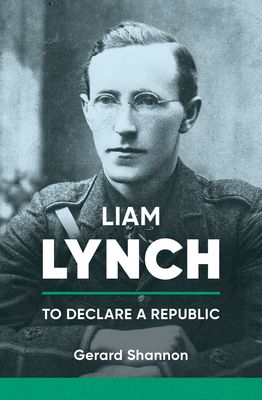The Treaty by Gretchen Friemann (Merrion Press, £14.99)
“Compromise makes a good umbrella, but a poor roof,” observed the American diplomat James Russell Lowell. “It is a temporary expedient, often wise in party politics, almost sure to be unwise in statesmanship.”
The unwise compromise of the Anglo-Irish Treaty haunts Ireland to this day. Most of its Irish signatories naïvely hoped it would be a staging post on the road to a 32-county republic while the British viewed it as a pragmatic way of solving “the Irish problem” once and for all.
As we know to our cost, neither the Irish delegation nor the British negotiators were correct. The temporary fix soon came unstuck, generating a civil war, in which some 2,000 people were killed including the charismatic guerrilla leader who had masterminded the battle against Britain’s forces. By creating a disunited Ireland, it also ensured continuing conflict.
Despite the treaty’s bloody consequences, and probably because of them, few histories deal with the intimate details of the prolonged negotiations in the final months of 1921. It appears to have been accepted that Frank Pakenham’s well-sourced 1935 study, Peace by Ordeal, was good enough.
RICH SEAM OF NEW MATERIAL
Although Gretchen Friemann has leaned heavily on Pakenham, she had introduced a rich seam of new material, especially from the British perspective, and compiled a comprehensive account. Among the book’s virtues is the confirmation that Westminster’s politicians, honed in the use of Britain’s imperial divide-and-rule policy, exploited it with masterly skill.
By contrast, the Irish were riven by personal and political rivalries. Accounts of the bitter disputes between Michael Collins, Arthur Griffith, George Gavan Duffy, Robert Barton and Erskine Childers make for painful reading.
The key British negotiators – David Lloyd George, Winston Churchill, Austen Chamberlain and F.E. Smith (Lord Birkenhead) –were aware of the lack of unanimity among the Irish delegation and took full advantage of it. None better than Lloyd George, prime minister in a coalition government, who was renowned as a political wheeler and dealer. He took care to ensure that his team were united or, at least, appeared to be united.
By contrast, the Irish were riven by personal and political rivalries. Accounts of the bitter disputes between Michael Collins, Arthur Griffith, George Gavan Duffy, Robert Barton and Erskine Childers make for painful reading. As if that wasn’t bad enough, their problems were compounded by their ambiguous agency. As actors on the centre stage, they were hampered by the noises off.
Eamon de Valera sought to pull strings from Dublin, and is rightly identified by Friemann as a troublesome, enigmatic absentee. His requirement on the delegation to travel backwards and forwards from London weakened their hand and, ultimately, that shortcoming was skilfully exploited by prime minister Lloyd George to hasten the treaty’s signing.
On the British side, there was also pressure from men who were not participants in the talks. Lloyd George and Conservative leader Chamberlain were consistently urged to give no quarter by the Unionist leader James Craig, militantly supported by the influential Tory, and fanatic anti-nationalist of Ulster descent, Andrew Bonar Law. Their involvement ensured that the six northern counties would remain apart from the rest of the island.
THE IMPERIALISTS' IMPERIALIST
Churchill, the imperialists’ imperialist, played the Orange card by suggesting that partition was settled and, by implication, beyond Westminster’s capability to amend. “We cannot give way on the six counties”, he said. “We are not free agents.”
The more pragmatic (or should that be more slippery?) Lloyd George might have been more open to discussions about the status of the breakaway counties, but he was faced with threats of resignation by Chamberlain and Birkenhead should he dare to pursue the notion.
#OnThisDay 1922 The Second Dáil ratified the Anglo-Irish Treaty by 64-57 thus creating the legal process for the formation of the Irish Free State & sowing the seeds for the Irish Civil War. De Valera resigned as President. Sinn Féin split. #Ireland #History #Treaty100 pic.twitter.com/6o7HutyJNW
— The Irish at War (@irelandbattles) January 7, 2022
Instead, he offered the sop of a boundary commission, luring Collins into the belief that it would recommend the addition of Fermanagh, Tyrone, Derry and south Armagh to the Free State. In so doing, Collins believed it would prove that a separatist northern “state” was unviable.
He viewed that possibility in concert with Dominion status being a stepping stone to full independence, summing up his position in his famously optimistic statement: “In my opinion it gives us freedom, not the ultimate that all nations desire and develop to, but the freedom to achieve it.”
As Friemann notes, the Irish negotiators, including Collins, were guilty of incoherent thinking on partition. It was just one reason, arguably the major reason, for the failure of the pro-treaty advocates to win over republican sceptics such as Mary MacSwiney who thought the signatories should be arrested as traitors.
One insistent theme throughout the talks was the threat that failure by the Irish to reach an agreement would lead directly to war. Lloyd George referred to it whenever there was an impasse. Churchill, as one might expect, was foremost among the sabre-rattlers.
Friemann tells the story by employing a format known in the journalism trade as tick-tock (not TikTok), a chronological narrative structure which weaves together significant facts with extraneous detail. It has virtues, but did we really need to know, for example, that Robert Barton was the first to arrive at Euston station?
She is also overly fond of using tabloid-style, inconsequential descriptions: Eamon de Valera is “the long-limbed revolutionary” while Harry Boland is “the gregarious revolutionary” and Desmond Fitzgerald is the “debonair head of publicity”. The English participants, with the exception of “monocle-wearing” Chamberlain, are largely spared such nonsense.
That said, Friemann’s chronicle is fast-paced, readable and, most importantly, instructive. Most importantly, it confirms what the treaty’s critics knew before the ink on the signatures had dried: British determination to avoid a clean break with its neighbouring colony was bound to engender the spilling of more Irish blood.






